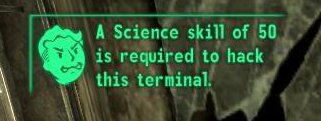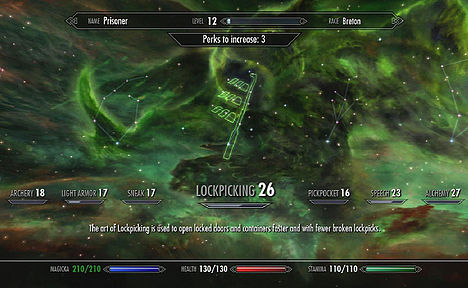Welcome to Talkin' Shop, where we take a look at some of the big issues in game design. This week, we take a look at something called "anti-fun," check out a few examples of it in action, and talk about its roots in a game's design.
The Hell IS Anti-Fun?
The term "anti-fun" was popularized by Zileas, design director at Riot Games (of League of Legends fame). In a forum post Zileas said: "Anti-fun is the negative experience your opponents feel when you do something that prevents them from 'playing their game' or doing activities they consider fun." An important distinction here: anti-fun is not simply "not having fun," it's a specific method of not having fun in which your agency as a player is severely damaged or entirely eliminated by things outside of your control. When we play a game, we like to bring our own style to the table, and anti-fun is what happens when you're forced to simply respond to someone else's style instead of playing your own.
Anti-Fun is Everywhere, But That's Fine!
In a multiplayer context, pretty much everything a player does is going to create some amount of anti-fun for the opposing players. For example, if you're playing some Battlefield and your preferred style is to run in with guns blazing, then that sniper who puts you down as you cross ground is creating anti-fun for you. However, we wouldn't say that sniping is a broken game mechanic in this case, and it's largely a case of magnitude. The skill of lining up a good sniper shot and the thrill of landing it generates far more fun for the sniper than anti-fun for the hapless target. Will the run-'n'-gun player need to change their style in response to the sniper? Yes, but it's not unreasonable - they simply stick to cover when crossing open ground, or use a vehicle to get to the destination and then go all Rambo. If the map is designed in such a way that there is truly nothing to be done about the sniper, however, then that's a big problem. If you've ever played a multiplayer first-person shooter, you can probably think of a few levels that you either love or hate based on your relationship with their balance issues.
So anti-fun is bound to pop-up in multiplayer games - after all, if you don't have to respond at all to what the enemy does then it's not exactly a multiplayer game - but it doesn't really become an issue until it dwarfs the amount of fun going on. Let's take a look at some genuine anti-fun in practice.
Example 1: DOTA's Mana Burn
This is the one that Zileas references in his post, so let's start with it. In DOTA, the Nerubian Assassin character had a "Mana Burn" ability which would remove a chunk of the target's mana (used for all skills) and deal some damage. This is perhaps the pinnacle of anti-fun, as if you are on the receiving end of a mana burn, you now don't have any mana to use your skills. Because of one little thing the enemy did, your ability to make choices and play the game with your own style gets thrown out the window, as you're reduced to using your basic attack, which doesn't use mana. What really makes the mana burn a prime offender is that there's no real way to dodge it - it's what we call a "direct damage" spell, so if you're in range and the enemy uses Mana Burn, you're out of luck, and there's nothing you can do about it.
Example 2: Harassing in Warcraft 3
You're a few minutes into a multiplayer round of Warcraft 3 when an enemy hero, most likely and Orc Blademaster, shows up in your base and chops up your peasants. The risk to the enemy is relatively minor, as the Blademaster can pretty easily land a few kills and escape, but you, as the victim, need to pretty much drop everything and handle this shit. Suddenly, everything that you bring the table when you sit down for some Warcraft gets thrown out the window because you have to go into full reaction mode. Your entire experience is now defined not by how you roll, but how your enemy rolls. Back in my Warcraft 3 days, I got harassed quite a bit and learned to effectively counter it, but having an effective counter to an anti-fun scenario doesn't always make it better - you're still being shoehorned into a particular set of actions based entirely on what someone else is doing. You're not playing your game, hell you're not even playing Warcraft - you're playing Counter the Harass. Choosing to harass is the trump card that says "I will have a disproportionate say in how everyone will play this game," and that's anti-fun at its worst.
Example 3: Stunlocking
Once again, DOTA was a big offender here. With the right items and a character that specialized in attack speed, you could keep an enemy hero stunned ad infinitum. Fun for the stunner? Hell yes, but at an absolutely atrocious cost to the poor sap on the receiving end. The biggest telltale sign of antifun is when a player literally can't do anything but respond to another player - stunlocking takes it further, making it so a player simply can't do anything. Period.
A Curious Case: Judges in Final Fantasy Tactics Advance
Yuuuuup, anti-fun can pop up in single-player games, too, though it certainly has a different feel because you're not balancing the anti-fun of one player against the fun of another. In FFTA, every battle began with a judge banning certain weapon or skill types. Failing to adhere to these rules resulted in harsh punishments. This is a clear-cut case of anti-fun, as the player gets to watch their agency vanish before their eyes. Through no fault of their own, the player is now being told how they can or can not play the game.
Balance or Design?
In reading those first three examples, the word that might have popped into your mind is "balance." That word, however, is not always the answer In the first example, you could make changes to the mana-burn skill, like making it a skill-shot projectile or tweaking some numbers, but at the end of the day, mana burn isn't a balance issue, it's a design issue. It's a skill whose sole purpose is to severely limit a player's options, and making some minor changes to its implementation isn't going to fix that. And sure, you could counter a harass in Warcraft, so it's not really a balance issue - it's a design flaw that has the enemy's choices taking precedence over yours. If they play the Harass Card, that sets the tone whether you like it or not. Stunlocking, on the other hand, is more of a balance issue. Stuns and other disables add a lot of depth to games like DOTA, but they need to be incorporated in such a way that they don't spiral out of control. Using skillshots, combos or triggers, cooldowns, or other such limitations help ensure that such tools feel good to use but not frustrating to receive. After all, if I have an opportunity to dodge out of the way of a skill-shot or delayed AoE stun, then there's fun on both ends - fun for me trying to dodge and fun for the enemy trying to hit.
Final Thoughts on Anti-Fun
As players, we don't want to spend all of time reacting to other players, and that's what anti-fun boils down to: you're just reacting. And I'm not promoting the unreasonable notion that players should be able to play however they want without interference, I am saying that there's a give and take, that the overall experience should depend on what all players bring to the table.
We hope you've enjoyed our look at anti-fun and that your next game will be free of it! Do you have any other examples of anti-fun from games you played, or disagree with our take on things? Let us know in the comments! Have ideas for topics or our format? Shoot us a PM! Talkin' Shop will return with the next installment, Access Denied! and a look at some of Bethesda Softworks' games.


Log in to comment